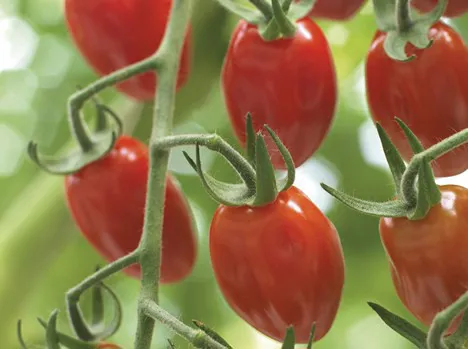The energy crisis that started with the war in Ukraine has had many repercussions on vegetable crops using artificial light in central/northern Europe. The gap was not filled by other producer countries and resulted in an imbalance on the international markets. In addition, in the tomato segment, difficulties also arose from the ToBRFV virus. Not even competitors from North Africa, with Morocco registering +17% in exports in 2021 and Turkey registering +12% in 2022, managed to meet demand.
FreshPlaza has talked about the situation on the table tomato segment in an interview with Bruno Busin, Product Development Specialist Solanacee at Syngenta.

"Compared with the last season, the winter campaign ended early in Sicily with production imbalances and high costs. Why is it? Well, the months of October, November, and December were basically an extension of the summer season, with high temperatures hastening ripening and concentrating supply. However, we can say that the campaign was rather positive for all table tomato segments, even for bunch tomatoes whose volumes saw a drastic drop with the onset of ToBRFV," reported the specialist.
"Thanks to a more effective management of the virus, we can say that the production of smooth round tomatoes is going back to pre-emergency levels. Integrated management protocols mitigated the problem without affecting yields or quality."
The international scenario
"Morocco also registered problems in 2022, contributing to the empty shelves in Great Britain. Due to Brexit, third countries are now the new preferred partners of Great Britain. In the meantime, British vegetable exports were blocked to safeguard the domestic market."
"Spain reduced its tomato crops already a few years ago also due to the competition from Morocco, which continues to grow because it is not affected by the restrictions of the Russian ban against the Western countries just like Turkey, which is actually increasingly becoming a hub for exports towards Russia."
Spain understood that the tomato segment would be suffering a while ago and tried to diversify by also focusing on avocadoes, pistachios, and other potentially more profitable red berry cultivars. It has also been specializing in the production of bell peppers in demand from central and northern Europe.
Strategic expectations for the near future
"Starting with the next campaign, we will have to deal with the lack of labor once again, a problem that is affecting many countries and definitely all of Europe (Spain, France, Italy, etc.). Let us not delude ourselves that the lower cost of labor in North Africa could constitute an advantage for their production, because the technical means and the costs of plastic and irrigation are now perfectly in line with European ones. We actually have a good reputation when it comes to quality and food safety."
New productions and climate change
"The end of the energy crisis will lead to a restart of productions under artificial light in the Netherlands, France, Germany, Poland, etc., which will mean dynamics will go back to what they used to be and that production prices in Sicily - unprecedented in June with over €2.40/kg for plum tomatoes in late May - will go back to being rarer. Climate change is another factor we will have to deal with, which is causing mild winters and very hot summers characterized by catastrophic events in all regions."
